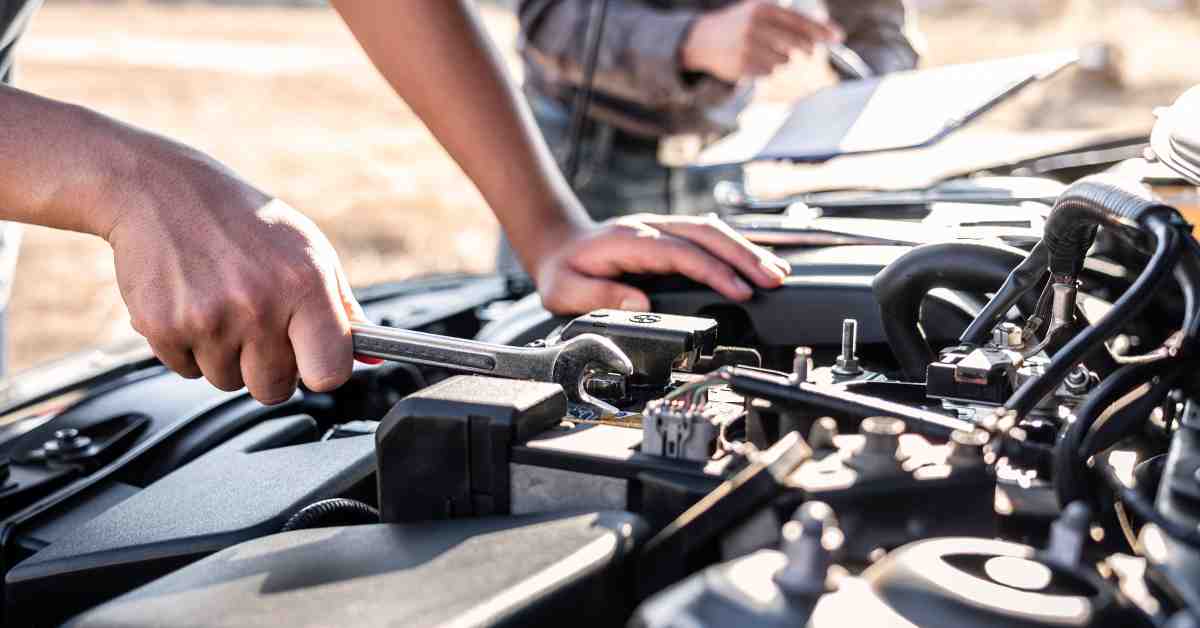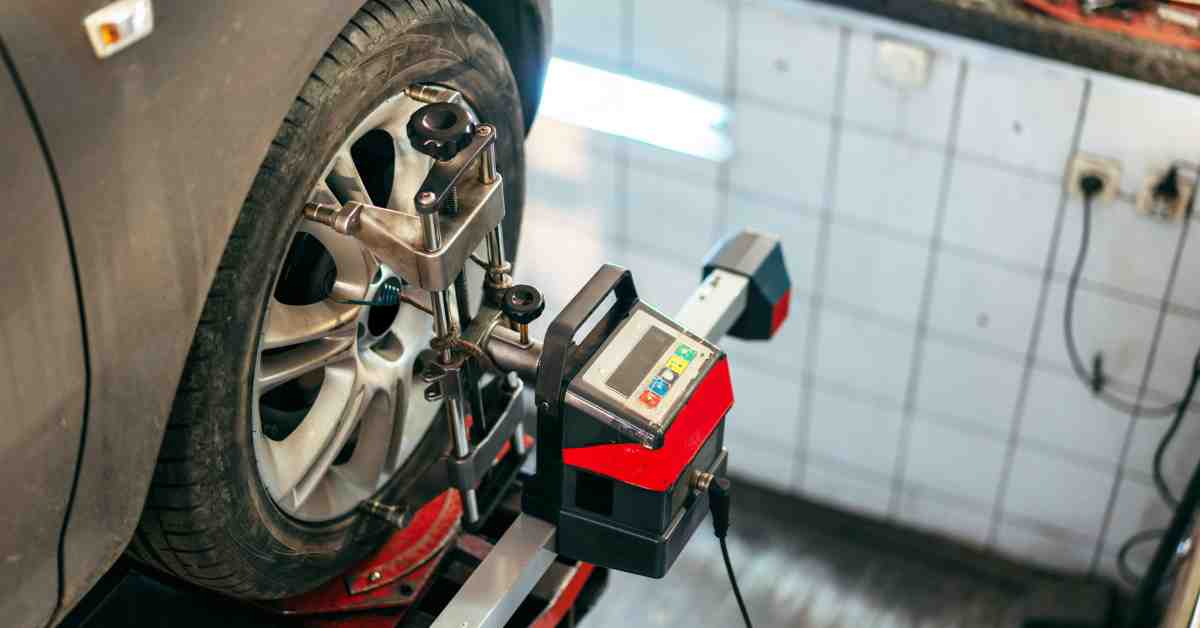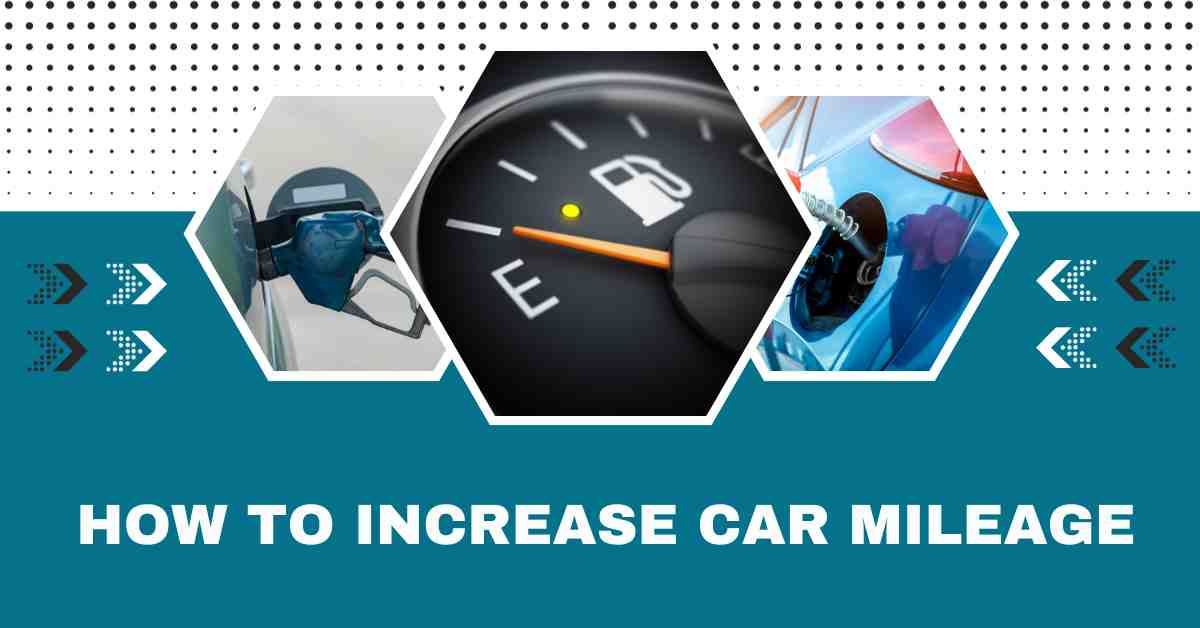Are you looking for ways to make your car more efficient? If so, we have the answer for you.
Increasing car mileage is an important measure of making sure that your vehicle runs better and lasts longer – and it doesn’t have to be difficult.
From simple maintenance tips to long-term modifications, this blog post will provide a comprehensive guide on how to increase car mileage.
So if you’re tired of seeing your hard-earned money going down the drain due to poor fuel mileage, then read on — it’s time to get started with increasing car mileage.
13 Tips On How To Increase Car Mileage

Increasing car mileage is a major challenge faced by many drivers. Fortunately, there are several ways to effectively increase your car’s fuel efficiency and help you save on fuel costs. Here are the top ways on how to increase car mileage:
#1. Keep your tires properly inflated
Keeping your tires regularly inflated as per recommended levels will ensure that they last longer and also improve the overall fuel efficiency of your car.
#2. Reduce drag on the vehicle
Reducing drag from wind resistance can significantly improve your vehicle’s mileage.
This can easily be done by avoiding excessive speeds, avoiding sudden stops or acceleration changes, and removing roof racks and other external accessories that create drag.
And simply maintaining good aerodynamics while driving at optimal speeds for less wear & tear on engine components.
Also Check: How To Calculate the Average Of Car
#3. Monitor your driving behavior
Poor driving habits such as accelerating and braking erratically or revving the engine will lead to lower fuel efficiency. Make sure you’re gently accelerating and braking, and try not to speed excessively.
Additionally, if you’re able to drive with cruise control on the highway this can make a difference by helping keep speeds consistent over long distances while reducing fuel consumption.
#4. Maintain your vehicle regularly

Keeping up with regular maintenance will help keep your car running more efficiently and reduce fuel costs over time. Get oil changes regularly, and replace air filters every 10-15k miles (or as recommended by the manufacturer).
Additionally, replacing spark plugs when they get worn out helps maintain engine performance and optimize fuel economy as well.
#5. Use high-quality fuels
Try using higher quality petrol or diesel fuels whenever possible – it’ll cost a bit extra but can be worth it over time if it helps increase fuel mileage significantly.
You should also look for any special additives designed to help boost fuel efficiency – these could help add even more power to each tankful of petrol/diesel used.
#6. Slow Down on Highways
Driving at high speeds increases wind resistance pushing against your vehicle causing it to consume greater amounts of fuel. For optimal results stick below 80km/hr on highways so that wind resistance isn’t too great & you save money.
#7. Use Fuel Additives
To clean out line deposits left by traditional fuels which results in increased efficiency, additives containing cleaning agents such as PEA can be used in low concentrations once every few thousand miles.
This helps improve engine performance through an enhanced combustion process thus leading to higher mileage.
#8. Avoid Short Trips & Idling
Starting up cold engines every time for short trips is extremely inefficient on fuel economy; try combining errands into one larger trip instead or consider other transportation options like public transport or biking/walking if it’s nearby.
Additionally try not to idle too long while stopped because this also causes poor performance due to lack of air intake during the combustion process.
#9. Change Your Air Filters Regularly
A clogged air filter makes it harder for an engine to breathe, so regularly changing out your filters can have a big impact on overall performance.
Also, remember to check and clean out any other filters such as cabin air filters which may be contributing to reduced airflow within your vehicle’s cabin space too.
Also Check: List Of Top 5 Fuel-Efficient Cars In India
#10. Roll down windows instead of using air conditioning
A/C systems often take a significant toll upon one’s car’s overall efficiency so try rolling windows instead whenever possible — not only will it save energy but also provide a refreshing breeze during hot summer days.
#11. Check wheel alignment if needed

If your vehicle is pulling towards one side while driving this could be caused by incorrect wheel alignment.
It may lead to increased wear on one side of vehicle system components such as tyres but most significantly increases drag creating further resistance affecting Mileage negatively up to 10%.
Get checked annually or whenever uneven tire wear has been noted even slightly over time so that corrective action if necessary may be taken proactively minimizing its effect on the car’s mileage over time before serious damage occurs.
#12. Use Gears Correctly
This is another critical factor that affects the usage of petrol/diesel from your tank. Gear shifting while accelerating can give you maximum or efficient power output while keeping the engine working within its power band limits.
Each time you change gears ensure smooth clutch operation & reduce engine strain whenever possible by avoiding unnecessary gear shifts (especially if already traveling at the right speed).
A well-maintained vehicle gets maximum power output when driven with ideal gear shifts across various scenarios which can help improve mileage drastically.
Also Check: Diesel Vs Petrol Cars – Fuel Efficiency
#13. Finally Investing in hybrid cars
Investing in hybrid cars will significantly reduce your car’s fuel consumption at idle and low speeds while improving the overall mileage.
Electric motors are more efficient than petrol/diesel engines when it comes to turning energy into motion, so if you’re looking for long-term savings, consider investing in a hybrid vehicle.
Takeaway
Empowering ourselves with reliable knowledge and adhering to the prescribed practices can help every car owner save a lot in fuel expenses.
We need to take into account various factors mentioned above for increasing car mileage. All of these are small steps that together make a massive difference and help us maintain our cars better.
So what have you done lately to boost your car’s mileage? If we missed something important, don’t hesitate to let us know – please comment below.

